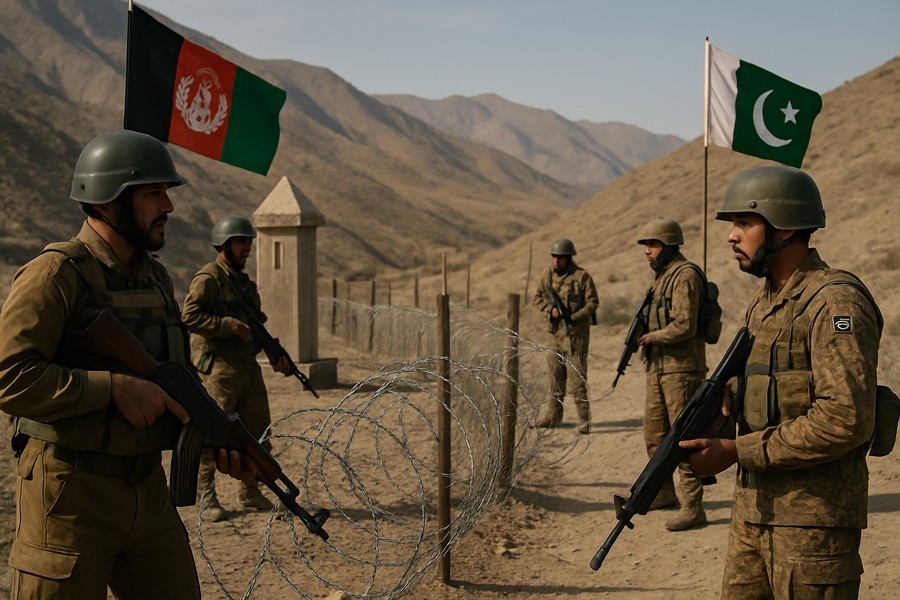
Heightened Tensions Between Afghanistan and Pakistan: What We Know
Recently, there has been an alarming rise in conflict between Afghanistan and Pakistan following a spike in deadly gunfire. This has led to concerns about a potential broader conflict.
These developments come after reported attacks in Kabul, Afghanistan's capital, and the border province of Paktika. The Taliban has pointed fingers at Pakistan for these attacks, although the latter has not confirmed their involvement.
Adding fuel to the fire, the Taliban’s Foreign Minister recently visited India, a known rival of Pakistan, which raised eyebrows in Islamabad. This visit and the recent events could potentially mark the beginning of a new phase of turbulence between the neighboring countries.
Escalation of Hostilities
The Taliban has characterized Pakistan’s supposed attacks as “unprecedented, violent, and reprehensible.” Despite this, Pakistan has refrained from officially taking responsibility for any assaults.
In a recent press briefing, a high-ranking military official from Pakistan suggested that “Afghanistan is being used as a base for conducting terrorism in Pakistan.” Pakistan has repeatedly accused Kabul of providing a safe haven for the Pakistani Taliban, a claim vehemently denied by Afghanistan’s Taliban.
In response to the alleged assaults, the Taliban launched reported retaliatory attacks against Pakistani forces near the Kunar and Nangarhar border provinces. Pakistan retaliated by reportedly striking Taliban camps, support networks, and training facilities in Afghanistan.
After mediation from Qatar and Saudi Arabia, the Taliban declared a halt to its military operations. However, the death toll varied according to each country's claims. Pakistan claimed over 200 Taliban and militants were killed, a figure that significantly exceeded the Taliban’s reported losses of nine. The Taliban, in return, claimed they had killed 58 Pakistani soldiers, a number that more than doubles Pakistan's claimed losses of 23.
A History of Conflict and Cooperation
Afghanistan and Pakistan's relationship has been a complicated one, marked by frequent clashes along their disputed 1,600-mile border. Despite this, the two nations have maintained trade ties and people-to-people relations. Pakistan has even hosted millions of Afghan refugees over the years.
However, the resurgence of the Pakistani Taliban as a security threat, with over 600 attacks in the past year, has strained the relationship further. Pakistan's military stated that while they prefer diplomacy, they will not tolerate the use of Afghan territory for terrorism against Pakistan.
The Role of India
Adding another layer of complexity is the relationship between India and Pakistan. The recent visit of the Taliban's foreign minister to India, Pakistan's main regional adversary, has raised tensions. The announced reopening of an embassy in Kabul by India further highlighted the warming ties between India and the Taliban, much to Pakistan's discomfort.
Pakistan has historically seen a good relationship with Afghanistan as a means to counterbalance India. However, the recent developments have seriously challenged this viewpoint.
International Response and the Road Ahead
Several countries, including Qatar, Saudi Arabia, China, and Russia, have called for de-escalation. There has also been an offer from a prominent world leader to mediate peace.
Although the violence seems to have simmered down for the time being, these recent attacks could potentially trigger a new era of instability. Much will depend on how the Taliban manages its relationship with the Pakistani Taliban, which is cited as the main issue.
It remains to be seen whether the increasing geopolitical costs will push the Taliban into a reassessment of its stance. Only time will tell if these recent events serve as a wake-up call or a precursor to further conflict.
